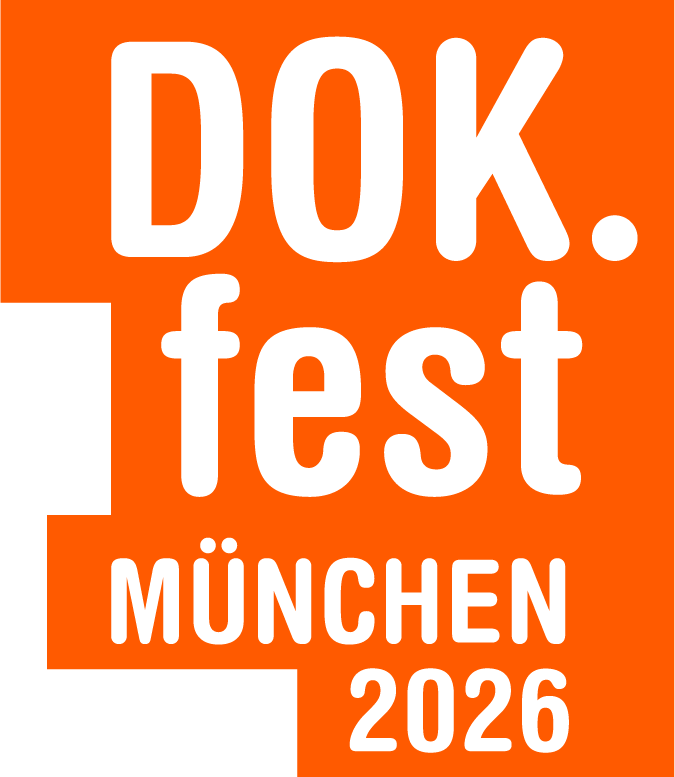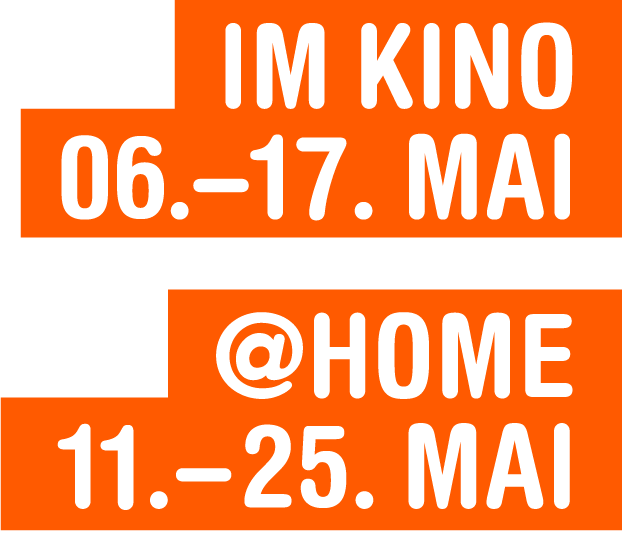The future of cinema is happening now!
DOK.fest München’s nine theses on the future of theatrical documentary film
Due to the current situation, DOK.fest München has entered the highly competitive online market with its film programme, where, as a new provider, we were, in a sense, destined to lose. The high level of interest we received now proves to us that this market is open to these outstanding films. More than 75,000 viewers across Germany watched the 121 films of DOK.fest München @home and the DOK.forum and DOK.education events online. The number of actual viewers is likely to be considerably higher, as we do not know how many people in each household were sitting in front of the screen at any one time.
DOK.fest München has finally arrived in the digital age and will use the valuable experience gained from this edition in all areas - the festival itself, the industry platform DOK.forum and the education platform DOK.education - for its further development. If our supporters, partners and the industry are prepared for us to do so, we will, in the coming year, demonstrate on a grand scale that the presence and distribution of documentary films in cinema and on the net can not only complement, but even strengthen each other. Here, we will outline this opportunity in nine theses.
At the bottom of the food chain?
Documentary films have never had it easy in their distribution channels. In recent years, there have been a large number of films in German cinemas that were only seen by a few paying viewers. This is not due to the quality of the films, but to an overstrained market with too many film releases and the fact that the marketing resources available to a theatrical documentary are often too small to achieve sufficient attention and outreach. If now, after the restrictions have been lifted, cinemas in Germany are conditionally reopening, documentaries will have to line up at the very back of the queue. The question facing all of us, and not just as of today, is: will documentary film play any relevant role at all in cinema distribution strategy in the near and even more distant future? Thesis No. 1: Documentary film is a genre with a greater potential for target groups than is generally acknowledged. It must seek out its viewers where they are: on the net. This applies to marketing, but also to the presentation of the films themselves.
My Festival first?
Film festivals love premieres; every premiere is another notch in the piston and seems to be the standard for evaluating a film festival. This is a tradition that has gone from being the peculiarity of a few festivals to being a vanity that is no longer up to date. Are festivals really the midwives of film? Or rather, don't they live from the films that others have made and have the ability to support them in their outreach and distribution? In the meantime, within the distribution chain for documentary films festivals have a very special task and responsibility to the industry: documentary film festivals have to compensate in part for the lack of regular cinema distribution, in the cinemas themselves and possibly with supplementary online offerings. This is exactly what their quality is based on, their endowment and outreach as well as their regional location. By the way: the cultural calendar and the film industry in Germany offer enough scope for every major festival to present enough premieres. Thesis no. 2: Film festivals must rethink and further define their self-image and mission. Their potential within the distribution chain is greater and has not yet been fully considered.
A festival is a festival is a festival.
The World Wide Web offers a festival numerous opportunities to position itself widely in the truest sense of the word with its programme. Some festivals have now had to venture down this path and are also discovering the opportunities it offers. However, the temporary gold-rush fever that individual festivals are experiencing should not lull them into premature fantasies of expansion. First and foremost, there is the responsibility we as a festival have towards the creators of each individual film, towards the industry itself and, last but not least, towards other festivals worldwide. Now that the dust is slowly settling after the end of the restrictions, it is important to measure strategies against our own principles and goals and to act accordingly. The distribution chain of theatrical documentaries is a fragile construct, both nationally and internationally, from which a stone is not to be pulled out without consequences. Thesis no. 3: In the near future, film festivals can assume even more responsibility and activities in the distribution chain of documentary films, possibly with additional online offerings.
New territory on the World Wide Web?
The online edition of a major film festival is not a matter of course today. The current situation forces us to go down a path that already exists as a technical possibility, but with which we are struggling in every respect. Most recently, since more and more providers in the film market have been successful online and our familiar production and distribution chains have been disrupted, we are aware that the future demands that we break new ground. Now the temptation is great to use the internet as it offers itself: as an opportunity to operate worldwide. That cannot be of interest of a festival that is anchored in time and place. This is why the online edition of DOK.fest München was only available within Germany and limited to a period of 18 days. This was a very important measure to guarantee the further distribution opportunities of the films. Thesis no. 4: Geoblocking and time limits guarantee the existence of further players in the online distribution chain. This also applies to film festivals.
Money makes the world go round.
Currently, numerous cultural providers and also film festivals online are reacting to the restrictions with well-intentioned offers, free of charge. This is a fundamentally questionable signal, even, or especially, at this time. In this way, we continue to promote what is in effect an inherent defect of the internet: the apparently copyright-free world of digital content. Even in its online edition, the films of DOK.fest München could only be seen with a ticket or festival pass. All prices were set lower than regular cinema entry, but significantly higher than the offers of competitors from Silicon Valley. In addition, there was an extra ticket with a solidarity contribution for our partner cinemas in Munich. Immediately after the decision was made to go online with this edition, we promised the rights holders of the films already confirmed for the festival an increased share from showing their films in the online edition. Film art must have its price, also online. The high number of visitors now proves that we are on the right track. Thesis no. 5: Film festivals must sell regular tickets in order to be able to pay relevant screening fees for all films. No matter whether these are exhibited in the cinema or online.
Back to the future.
In this year's online edition, without much advance notice and without the usual promotion possibilities, we have managed to achieve a number of individual ticket sales that is close to those achieved from regular cinema distribution. We have certainly reached a whole new audience, which would not have made the step into the cinema for a documentary film until now. All previous surveys on the behaviour of film lovers suggest that the use of online offers and cinema attendance are not mutually exclusive, but are in part conditional. Thesis no. 6: Film screenings in cinema and in online platforms are not in direct competition. Appearing on both platforms increases the films’ reach and their possibilities to generate both greater and completely new audiences.
Those in darkness drop from sight.
The opportunities for viewers to watch films have become even greater and more diverse thanks to new providers. The market is fast, every new film displaces a current one and the mood is becoming increasingly aggressive on the question of pricing policy. Only those who are sufficiently visible in this market will be accepted by the audience. In public relations and press work, each film can only generate coverage once. That is why it is especially important for documentary films to join all synergies in the film’s distribution. In order for these films to be visible in the market, they require considerably more financial resources. Thesis No. 7: Film funding bodies should revise and expand their concept for the allocation of promotional funds. Significantly more funds must be allocated to theatrical documentaries for communication and marketing.
Free passage for free citizens.
We do not even manage to implement politically the speed limit on German motorways. Why should we be able to use regulation to tell people which films they can watch when and where? The audience watches the films where they get them: that can be in the cinema, on TV or online on a streaming platform. We will not get people back into the cinemas if we think we can dictate to them the way they have to watch certain films. The market is too big and too liberal to be regulated. But we should not let Netflix, Disney or Amazon alone decide which documentaries we can and cannot watch online. It is of great general interest to build up structures in Germany that make the coexistence of online and cinema distribution possible and interlink them. Here in Germany, the KINO ON DEMAND and KINOFLIMMERN projects are a starting point and DOK.fest München @home 2020 a valuable experience in this sense as well. Others will definitely follow. Thesis No. 8: The traditional holdback stems from the era of the linear, dual market. It can no longer protect cinemas, but now denies films access to the public. In this sense, the holdback period is counterproductive for documentary films and should be abolished.
Cinema on demand.
We have to assume that society at large cannot simply return to its previous state after this crisis. This crisis is too substantial for that; the needs in our affluent society are too pronounced and diverse. This is especially true for major events and certainly also for cinema. In the near future, the cinema must not only be able to withstand coexistence with the internet, but also demand it as a complement. Cinema is defined by its large dark and atmospheric space during screenings and the social interaction around it, as well as the curated cinematic programme. Only cinema can do what cinema can do. It must work with its irreplaceable qualities at all levels for the distribution of theatrical documentaries – preferably, if possible, in close cooperation with a local festival. Thesis No. 9: The simultaneous distribution of documentary films in cinema and online brings in total more viewers for each individual film. All festival tickets should be included in the German Federal Film Board’s ticket count, the cinema tickets as well as the online tickets.
Daniel Sponsel,
in collaboration with Adele Kohout
Munich, May 27th, 2020



